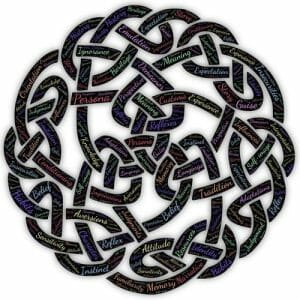What’s your type — your “neurotype” that is? Or, where is your intelligence stronger? ADDers have wonderful gifts, gifts that often  aren’t recognized by standard measures.
aren’t recognized by standard measures.
ADD/ADHD is an unfortunate label for the syndrome of different neurological types. It’s not a disability, as the last “D” indicates. It’s not attention deficit as the “AD” indicates. It does not always involve hyperactivity, as the “H” indicates. ADD is a spectrum of neurological types that are a reflection of our gifts and super powers.
You have abilities, areas of intelligence, beyond the standard cognitive skills we are tested on in school systems. You might be brilliant at art, body awareness, or learning foreign languages, and hardly hold it together in math.
Today’s educational system, and society, too like to categorize people and put them in convenient boxes. You see that with the personality tests, like Myers Briggs, too. You may be an ISTP or an ENFJ, according to your test results, but your personality rolls over the edges of those boxes so you share characteristics with the other personality types. You aren’t as neat and tidy as the box indicates. You complex human, you!
Now, if you didn’t take a test that measured your other talents outside Verbal/Linguistic and Math/Logical skills, there wouldn’t be a complete picture of your gifts. Let me introduce you to the other forms of intelligence that do reflect the neurological types of the spectrum you live on. These are the strengths you use to interact with your world.
Enjoy the list, a compilation of two different articles I’ve found, of the eight kinds of intelligence, or neurotypes.
- Art – Spatial: being able to conceptualize and manipulate spatial arrays, large and small, to paint/draw, design, pilot, sail, or even play games like chess
- Body-Kinesthetic: being body aware and able to use parts of your body, or your whole body, to create or to solve problems — dance, martial arts, yoga, athlete (runner, pole vaulter, gymnast, swimmer, etc), …
- Interpersonal: being sensitive to others’ feelings, motivations, moods, and temperaments
- Intrapersonal: being sensitive and aware of your own feelings, motivations, desires, temperament, and goals
- Logical – Mathematical: being able to conceptualize the logical relations among symbols or actions/reactions
- Music – Musical: being sensitive to pitch, timbre, tone, rhythm, meter, or melody be that with voice, instrument, or composition
- Nature – Naturalistic: being able to distinguish between different plants, different animals, or different cloud types
- Verbal – Linguistic: being sensitive to the meaning of words, their order, as well as their sound, rhythm, meter, and inflections
Are you starting to see what kinds of gifts you have to enjoy and share with the world? Where do your strengths lie? Usually, ADDers have a unique combination of skills and talents. The joy comes in combining them, using them in ways that make you happy and unique. That combination can be as your career or hobby.
Rather than think of your ADD as a disorder, think of it as a delicious spectrum of skills, talents, and abilities. That’s quite a gift, a gift of neurological intelligence.
